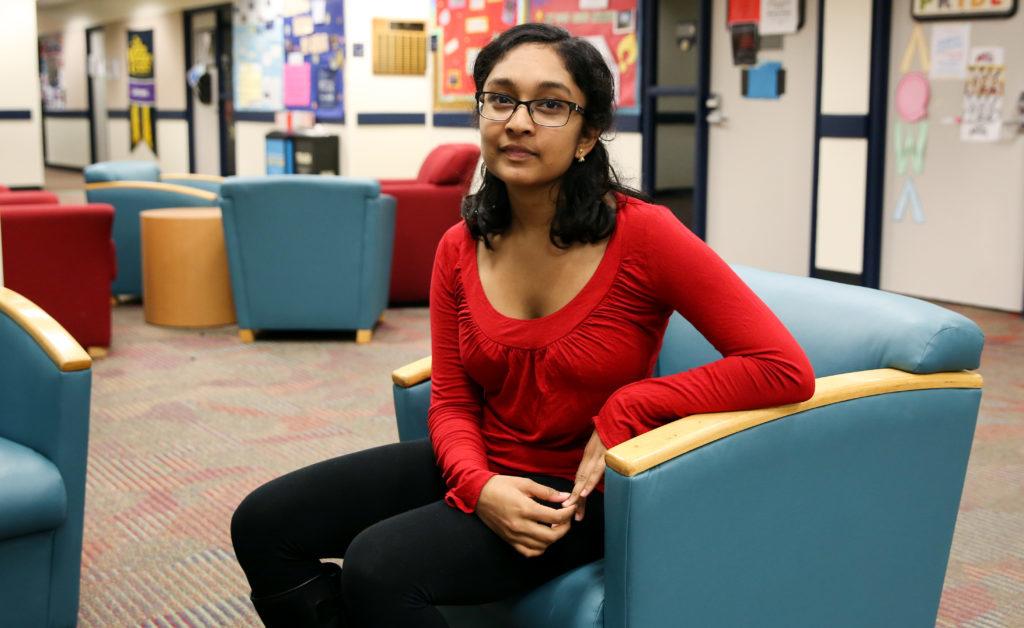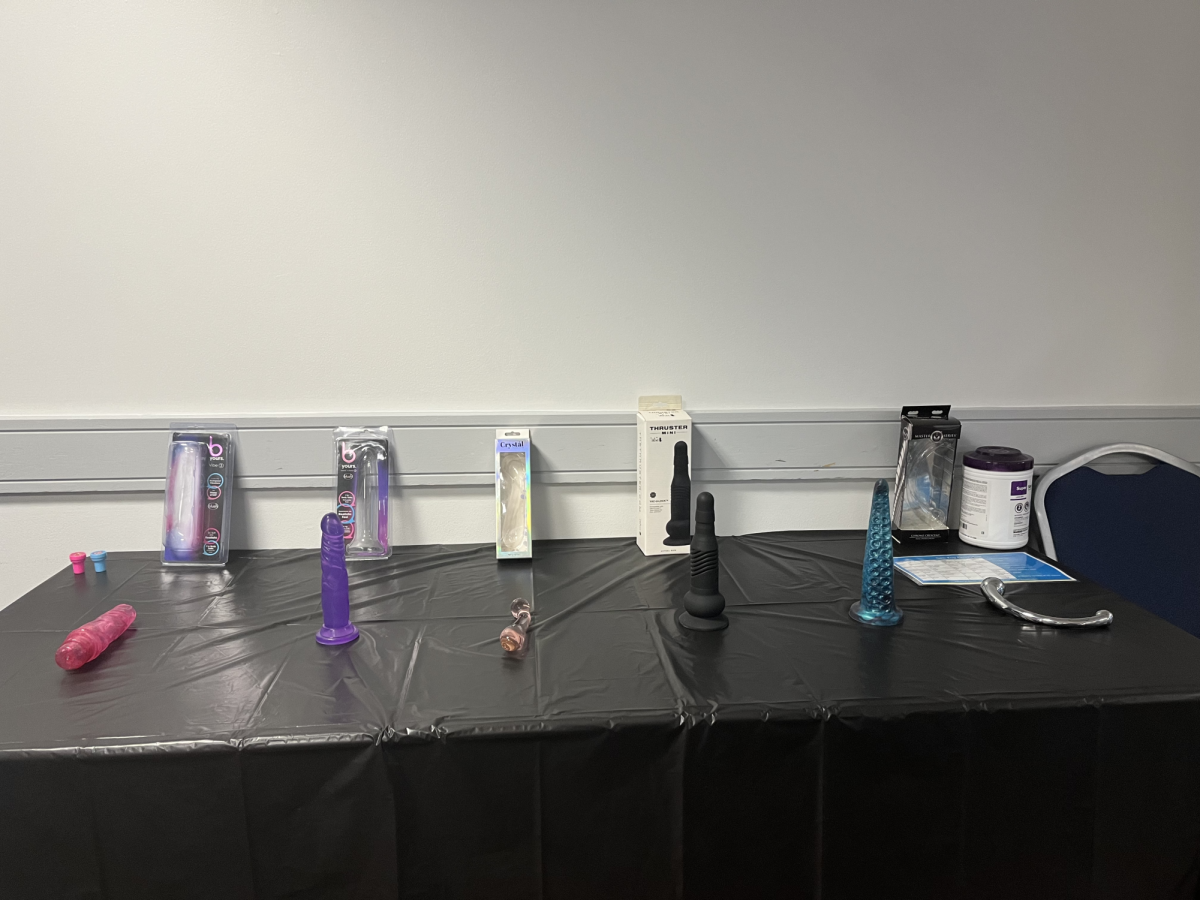Student organizations hosted an event last week to make students think twice before donning sombreros and Native American headdresses this Halloween.
Days before Halloweekend, five student organizations came together for an event called “Halloween Costumes: Appropriate versus Appropriation” to discuss how to avoid cultural appropriation when choosing a costume. The student groups said they hoped to help students better understand the consequences of cultural appropriation and ensure cultures were respected, and not misrepresented, in costumes on campus this Halloween.
The event was held in a large classroom in Monroe Hall, where students sat in small groups eating candy while discussing cultural appropriation, what should be done about it and the difference between appropriation and appreciation. GW College Democrats co-sponsored this event with Young Progressives Demanding Action, the GWU Asian American Students Association, Indian Students’ Association and the Caribbean Students Association.
Sabrina Davis, the senior deputy director of racial justice for College Democrats, said this conversation was necessary to explain why it is an issue and how people are affected.
“No one’s going to know they’re appropriating someone’s culture unless they learn what that is.”
“No one’s going to know they’re appropriating someone’s culture unless they learn what that is,” Davis said. “If we opened a dialogue for people to understand how to navigate the social landscape and to be conscious of what cultural appropriation is, then we’re creating a better social environment in our school.”
Last Halloween, Davis said she saw a couple dressed up as Bruce Jenner and Caitlyn Jenner, a costume which she felt was inappropriate because it “makes a mockery” of the LGBTQ community.
That same Halloween, Saara Navab, the multicultural director for College Democrats and a Hatchet opinions writer, said she recalled seeing numerous colorful ponchos, sombreros and maracas as part of Mexican costumes.
Navab said she proposed the event because, as a woman of color, she has been affected by cultural appropriation. But she said she wanted the conversation to be approachable because it can be an uncomfortable topic to discuss.
“Halloween is one of my favorite holidays, it’s really fun, and people can get creative, but there’s also a lot of issues that come with it,” Navab said. “I wanted to make an event that had a serious issue to talk about but was more of a light-hearted event.”
Navab said she reached out to numerous cultural student organizations to ask if they wanted to host the event with them and tried to incorporate multiple perspectives on the topic. The group decided to host the event with other student organizations and conduct it in a discussion style to encourage voices from different viewpoints to speak up, she said.
“Even if they are white voices, because I think on a topic like cultural appropriation, it’s such a hard topic to understand that you really do need everyone’s voices in order for more people to understand why it’s bad and the effects of it,” Navab said.
Priya Kavanakudiyil, the vice president of the Asian American Students Association, said she wanted her organization to get involved in the event because cultural appropriation affects everyone, not just minorities.
“It’s an issue that often goes unrecognized,” Kavanakudiyil said. “It’s important to know the impact of your own actions and how taking something or doing something that directly involves another person’s culture and the consequences of that.”
“America, and its citizens, are best served when they are able to adopt the best aspects and practices they come across; regardless of their origins.”
Erica Jung, the co-chair of the civil rights committee for YPDA, said people’s cultures are central to their identity and it is essential to respect the culture and individuality of people in groups other than just your own.
“It isn’t unique to our campus,” Jung said. “But I do think it’s definitely a problem on our campus.”
But not every student was on board with the event. Gage Cohen, a junior majoring in international affairs and the director of publications for College Republicans, wrote a blog on the group’s website responding to the cultural appropriation event, stating that students should dress in whatever costume they want.
In the article, Cohen said dressing as members of groups that have been marginalized in the past does not mean that the costume-wearer is supporting those actions. He also said students are not intending to make fun of the culture they are dressing up as and if they were making fun of any culture, he would make a point of “lambasting them for their idiocy.”
“America, and its citizens, are best served when they are able to adopt the best aspects and practices they come across; regardless of their origins,” Cohen said in the article. “‘Cultural appropriation’ makes the world go round, in a much more enjoyable way.”




